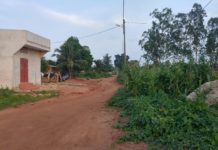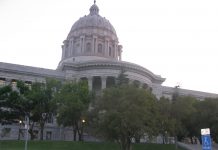Photo credit: DiasporaEngager (www.DiasporaEngager.com).
Mavis Keynote – African Development Bank Meetings
Friday, May 31, 9am, KICC
Honorable Ministers, Distinguished Guests, Ladies and Gentlemen. My name is Mavis Owusu-Gyamfi, and I am the Executive Vice President of the African Center for Economic Transformation. We are a pan-African economic policy institute, providing analysis, advice, and advocacy around Africa’s Economic Transformation. It is my pleasure to be here with you today.
I am encouraged to see the African Development Bank build in such a robust engagement with Civil Society as part of their Annual Meetings this year, and happy to see so many of you here to lend your voices to the discussion. This year’s African Development Bank themes are critically important and timely.
Let me share some thoughts with you, which I hope will set the scene for a substantive and productive engagement to follow.
I want to start with economic transformation, because it has to be at the heart of our efforts to secure financing and craft better policies. Yesterday at the launch of the African Economic Outlook Report, there was one clear message. We are growing as a continent, but most of our people are not benefitting from this growth, and we are not transforming.
Economic transformation is a broad term that can mean different things to different people. We need a common definition that helps us to focus our investments, track progress and hold ourselves to account. At ACET, we define economic transformation as Growth with DEPTH.
DEPTH represents 5 pillars: diversification, export competitiveness, productivity, technology, and human well-being. When we developed this framework, we also created an index to track countries’ progress against these five pillars – the African Transformation Index. The latest edition covers 30 African countries representing 86.5 percent of the continent’s GDP, and shows that before Covid -19 and the wars in Ukraine and Gaza, we were not transforming quickly enough, our economies were fragile, and we were not resilient. On average, the countries in the report scored 30.3 on a scale of 0 to 100 in 2020.
We have countries like Burundi and Niger scoring as low as 11.9, and others like Tunisia scoring as high as 69.5. In our analysis we found that countries like Tunisia, Morocco and Mauritius that were more diversified, export competitive, and making transformation progress took longer to buckle under the 2007 global financial crisis and at end of the commodity super cycle in 2014/15.
Their economies also recovered faster after these crises – which shows that transformation paves a clear pathway to resilience. This explains why so many of our economies that have not transformed continue to be so badly affected by external shocks.
This all sounds quite academic, so let’s stop and consider the people behind the research. Take diversification for example – it is not just about industrialization and the infrastructure needed to build it. It also involves services that ensure that the people who go to work in these companies have the trusted support they need for their families and loved ones while they are working for the benefit of our economies.
Let’s take one such sector – the care economy. It is currently mostly informal, unregulated, and in general exploitative – putting both those who give care and those who receive care at risk. It is built mostly on the backs of women who genuinely have no other alternative.
We could transform this sector into an industry that creates decent jobs and drives transformation. Imagine that we put in place regulations, training, fair pay, and protections for women that work in the care-giving sector. They would no longer be at the whims of individual employers, and they would have the skills they need to properly care for elders, people with disabilities, children, and more. They would earn enough to support their own families and build savings. And they would be part of the formal economy and pay taxes and their economic power could generate more and better resources for our countries’ transformation.
That is just one example of how we can diversify our economies from a dependence on natural resources. But we cannot transform our economies successfully if we work as individual countries. We must cooperate across borders to build regional value chains and centers of excellence that can compete with the rest of the world. We must trade with each and not just look outward. The rest of the world wants our raw materials and we need finished products. Let’s collaborate to build these finished products and first sell them in the region and over time we will gain access to global markets.
This will require our countries to ratify the AfCFTA protocols so that skilled people can move freely across the continent to take jobs where they are available, and so that the individual pieces that make up a finished product can move across countries quickly and safely.
If we want to be resilient to the next crisis, if we want to take our place as a real player on the global economic stage, if we want to compete: transformation and regional integration are essential.
So where will the money come from?
We have a wide-ranging toolkit at our disposal, and it is time for Africa to start using all of these tools at the same time.
Domestically
We are losing billions to illicit financial flows – an estimated $60 to $90 billion per year is flowing out of the continent. We have to plug the loopholes that let that money leave our countries and instead use those resources for our people.
Our Domestic Revenue Mobilization must improve dramatically. We have to use technology to build and enforce tax regimes that do not disadvantage the poor and do not cripple the growing middle class, in order to fund our development priorities.
And we must harness the power of remittances – the World Bank estimates that Sub Saharan Africa received $54 billion in remittances in 2023 alone. This money is helping people withstand the uncertainty of inflation and keep food on the table.
Regionally
Our regional finance institutions are being innovative and leveraging the little money they have into more finance for our development. From hybrid capital to subordinated loans, they are finding ways to further leverage their The AfDB is leading globally on a number of innovative instruments.
And in January a group of African multilateral financial institutions formed the Africa Club – which will provide us with a much stronger advisory and negotiating body on behalf of our countries, and pool the resources and expertise of our well-respected financial institutions in order to improve Africa’s position.
Globally
The global financial architecture was built at a time when our countries were mostly colonies. When women like me could not vote.
We have spent decades tweaking the system, and we all agree it is past time for an overhaul.
African Heads of State, Ministers of Finance, African Regional Institutions, African economic policy institutes and civil society are all in agreement on what we need:
- A real solution to the debt crisis as the G20 Common Framework is not working
- More grant and concessional finance money to Africa
- At least five countries to re-channel their Special Drawing Rights to the African Development Bank
- More African voice and power in global decisions and insitutions
- An ambitious green growth agenda
In each of these areas African institutions have done analysis and made concrete recommendations. We have seen progress in some areas – which last year seemed nearly impossible.
- The African Union has been granted a seat at the G20 – a great opportunity to increase our power in global decision-making, if we use it wisely.
- The IMF Board has paved the way for SDR rechanneling to the AfDB and other regional financial institutions, which will allow us to leverage finance and free up more resources for our development.
I hope that the VP for Finance Madam N’Sele will give us an update on how that is going and where we can put pressure to get countries to re-channel soon.
And we continue to work together to push:
- For more IDA as it begins its next replenishment round. We can use the same playbook for African Development Fund, so that one replenishment cycle does not cannibalize another.
- On debt, to improve or overhaul the G20 common framework and find faster, fairer and better solutions to borrowing and managing debt.
We have a lot more work to do, so we cannot rest yet.
Let me close with two asks to African Development Bank leadership, and to my fellow policy institutes and civil society partners:
The first is for is to work together to agree a common metric for transformation. ACET will be happy to offer the Growth with DEPTH framework as the starting point We have to move from anecdotes of success to using evidence to demonstrate progress, inform policy advice and decisions, and hold each other to account for progress.
And we have to pair this quantitative work with qualitative work from organizations like Afrobarometer and others that can tell us what Africans’ priorities and sentiments are.
The second is to collaborate with the growing ecosystem of African policy institutes, researchers and civil society organisations that are working together to put African thought leadership at the forefront of discussions on Africa.
We have extraordinary expertise and dedication across this continent – let us collectively make sure our ideas, our work, and our solutions are readily available to anyone looking to support Africa’s agenda and Africa’s progress.
We all know the African proverb – If you want to go fast, go alone. If you want to go far, go together. I believe by working together and combining our strengths we can go far and fast. We are ready to work with you realise the bright future we all want for our beloved continent.
Thank you.
Rewatch the address here
Source of original article: ACET (acetforafrica.org).
The content of this article does not necessarily reflect the views or opinion of Global Diaspora News (www.GlobalDiasporaNews.com).
To submit your press release: (https://www.GlobalDiasporaNews.com/pr).
To advertise on Global Diaspora News: (www.GlobalDiasporaNews.com/ads).
Sign up to Global Diaspora News newsletter (https://www.GlobalDiasporaNews.com/newsletter/) to start receiving updates and opportunities directly in your email inbox for free.





























